Quakers in Australia
Our Executive Director Jon Watts didn’t know much about Quakers in Australia before his recent trip Down Under. On this episode, he shares the stories he discovered of Aussie Friends — from the beginnings of Quakerism on the continent to the present concerns of Australian Quakers.
Subscribe so you don’t miss an episode!
After you listen, tell us what you thought of this episode in the comments below!
Download the transcript and discussion questions.
Discussion Questions
- What resonated with you hearing about the faith and practice of Quakers in Australia? What felt foreign?
- Travel often means leaving your comfort zone, especially with regards to faith communities. Share about a time when you took a trip that expanded your spiritual perspective.
Jon Watts
Hey, Georgia.
Georgia Sparling
Hi, Jon.
Jon Watts
Okay, so to start off today’s episode, I want to show you a video.
Georgia Sparling
Okay, that sounds good. What’s it about?
Jon Watts
It’s a video that I got as an email attachment out of the blue in 2012. And I think I want to just show it to you and get your honest reaction.
Georgia Sparling
Okay. It’s kind of shaky footage. There’s like a green cast on everything, kind of a night vision situation.They’re waving. I can’t really tell where they are. It looks like there’s trees and stuff in the background. Yeah.
Various
We love your music, Jon! Let’s get naked!
Georgia Sparling
Okay, well, that’s a motley crew. I have so many questions.
Jon Watts
So for context, in 2012, I had just released an album about Quakers in the 17th century who felt led to go naked through the streets of England. And this group of Australian young Quakers liked the album I released and sent me this video.
Georgia Sparling
Okay. That raises some other questions. Yeah so…
Jon Watts
Okay, we’ll get into it.
Various
Thee Quaker Podcast: story, spirit sound.
Jon Watts
I’m Jon Watts.
Georgia Sparling
And I’m Georgia Sparling.
Jon Watts
And in this episode, we want to take you with us on a trip.
Georgia Sparling
All right. Great. Got my passport ready, where we goin’?
Jon Watts
Well, so this past summer, I was invited to give a talk at Australia Yearly Meeting.
Georgia Sparling
And did it have something to do with that video?
Jon Watts
Yeah, well, kind of. So the video that we played at the top of the show was from a Quaker youth group in Australia. And until I got that video, I actually didn’t know that there were Quakers in Australia. But I saw that and I, you know, I knew that they were a fun group
Georgia Sparling
Obviously.
Jon Watts
So a few years later, when I got invited to their yearly meeting, you know, I was excited to go and connect more with these Australian Quakers.
Georgia Sparling
Okay, but for the uninitiated, remind us what a yearly meeting is.
Jon Watts
Right. So Quakers name our gatherings by how often we meet as a group to make decisions. So our local community churches are called monthly meetings, because that’s how often they have a business session, then those monthly meetings are all a part of a larger regional gathering, which is called a yearly meeting.
Georgia Sparling
Okay, got it. And you’ve spoken at a few of these over the summer.
Jon Watts
Yeah, I’ve been speaking at yearly meetings for a long time. You know, as as a songwriter, I used to get invited to offer sort of a musical plenary at yearly meetings all over the country. And lately, I’ve been getting invitations to come and talk about this vision for the future of Quakers.
Georgia Sparling
And that’s what brought you to Australia, right?
Jon Watts
Yeah, exactly. And Australia yearly meeting was actually online this year. And so I also did a bunch of travel around the country and visited a bunch of these local meetings. So today, I want to take you with me as I meet with Quakers from all over Australia.
Georgia Sparling
Okay, great. So I’m, I am curious, first of all, to know, just how Quakerism got to Australia and what it’s like there.
Jon Watts
Yeah, I had the same question. And and I figured we’d start there and then explore regionally a little bit. We’ll talk about the past and present of Australian Quakerism and we’ll visit Quakers in Sydney, in Tasmania, in Perth, Canberra, Thirroul and, and the Blue Mountains.
Georgia Sparling
And we’ll hear some of your talk?
Jon Watts
Yeah, yeah, I might include a little bit of my talk at the end but, but first, strap on your seat belt, lower your tray table and join me for a 15 hour flight in which the sun never rises. Hello,
Kathy Rundle
Hello, you must be Jon
Jon Watts
Jon. Hi.
Kathy Rundle
Welcome to Battery Point.
Jon Watts
Thank you so much.
Kathy Rundle
So welcome to Battery Point in Palawan.
Jon Watts
Thank you.
Kathy Rundle
Did you have a good flight?
Jon Watts
I did. I’m still a little bit jet lagged.
Kathy Rundle
It’s a jolly long way.
Jon Watts
We’ll start our journey in Hobart, Tasmania, where my host was a fount of information about the history of Quakerism here.
Kathy Rundle
Hi, I’m Kathy Randall. I live in Hobart,Tasmania. Tasmania is the southern island off Australia, but it’s part of Australia. I go to Hobart Meeting. I’ve worked as the archivist at the Friends School in Tasmania. And, and I’m currently the Aarchivist of the meeting house here in Tasmania.
Jon Watts
So I asked Kathy about how Quakerism came to Australia. And she shared with me the story of James Backhouse and George Washington Walker, two Quakers who traveled from England in the 1830s under a concern for the state of the penal system in Australia.
Kathy Rundle
Well, they were coming here to look at the state of things. They were going to look at the state of the convicts. Elizabeth Fry, who was a very prominent Quaker in England, was also really concerned with the state of women convicts. So she had encouraged Backhouse very much to come and look at the convict system. What was actually happening in England at the time, she was visiting all the convict ships that women were on, and providing them with things to do on the voyage.
Jon Watts
Something that Kathy said that really struck me is how often Backhouse and Walker traveled by foot. I had only been in Australia for a few days, but I was already getting a sense of the sheer size of the country. Even the relatively small island of Tasmania seemed enormous to me with cascading mountain ranges stretching to the horizon.
Kathy Rundle
They needed to travel by foot, there were very few roads even. And they must have been a very welcome sight for the convicts who might be working in big gangs. They traveled all around Tasmania by foot, and then Backhouse and Walker’s travels, led to the Sydney Devonshire Square Meeting being made. And that’s the biggest meeting in Australia. I think. Now, that wasn’t it wasn’t necessarily their aim to convert people at all it was to support it was to write and report. And they wrote the best diaries you can ever think of. And one of the other lucky things was that Backhouse had come from this family of nurserymen and plant growers and plant breeders. And as he walked around Tasmania, he discovered plants, all sorts of wonderful plants. So a great many of our native plants in Tasmania have Backhousei as part of their botanical name.
Jon Watts
Backhouse and Walker spent six years walking around Australia and went as far north as the site of Brisbane. They visited penal settlements wherever they went writing home to Elizabeth Fry, about the condition of the prisons. And they also established meetinghouses in many of the places they visited. I asked Kathy what she thinks is the legacy of Backhouse and Walker and if modern Australian Quakerism contains any echoes from that initial journey.
Kathy Rundle
I think their legacy has probably lent to Quakers in Australia being really keen on social justice. And I think that’s probably one of the things that we would be known for, for our social justice, and our concern with the environment. And I think that probably is part of Backhouse’s legacy, too. He also wrote a lot about the Indigenous problems. And we in Australia are having later this year, our vote to include Aboriginals, that’s First Nations people, in the Constitution. And I think that could be traced back to Backhouse and Walker, too. So I think our our concerns in Australia, with Indigenous, with nature, and with climate change and those kinds of issues, and with social justice, with soup kitchens, and homeless and refugees, probably can all be traced back to him. them.
Jon Watts
Thank you so much.
Kathy Rundle
[laughs] That’s my pleasure. We can talk some more tonight if you’d like.
Jon Watts
So Kathy’s last point there is something I want us to put a bookmark in because it’s something I experienced over and over in my visits with Australian Quakers. This is a group of people who carry serious concerns for the state of the world, but before we go there, I thought maybe we could ease into the present a little bit. What does Quakerism in Australia look like? Today, I asked for Quakers in three different cities to tell me about what feels important to them about the faith.
Liz Field
Oh, look, Quakers are shoulders shakers. Down in Quaker town. And I can’t remember the rest. [laughter]
Jon Watts
That’s Liz Field, from the Blue Mountain Meeting, a few hours west of Sydney. I interviewed Liz and Elizabeth Mitchell, another member of the meeting. Here’s Elizabeth:
Elizabeth Mitchell
I got the silence. The thing that kept that brought me to it was that there weren’t things that you had to pray for or if you didn’t, and there weren’t the spoken word and the minister standing up in the front and giving sexist, funny stories. So that was it.
Liz Field
We both come to Quakers from other churches, Presbyterian and Anglican respectively. And the thing we have really liked is the equality between men and women and, and how the children are listened to a lot more to and yeah, and it’s generally just a good feeling of community feeling amongst the group. Maybe we have our own little differences. Of course, who doesn’t, but we can usually speak about them and work them out.
Jon Watts
Now we’re going to head down the coast to Thirroul Meeting where I spoke with Patrick Anderson.
Patrick Andersson
So, it’s an opportunity to sort of think, well, what am I struggling with in my life at the moment? And what am I like, what am I doing really well with? What a and sort of bring it back to a faith of how is this reflecting God? What like moving forward? If you know, I have challenges? Can I like, what would God what would Jesus kind of say, suggest I do with this? How would I? And if I am struggling to come up with an answer, then at the end of that hour or silence, that’s an opportunity to talk to my fellow Quakers. Hey, I’m struggling with this. Is anybody else that uh, was other people’s opinion had other people feel about this? And so I think for most Quakers, it’s, you kind of have to come here on your own terms, you have to come here on your own understanding. And the understandings that go with Quakerism also lend themselves to being politically mindful and being like wanting to be an active participant in change.
Jon Watts
And finally, here’s Evan Gallagher from Canberra Meeting.
Evan Gallagher
Yeah, so it’s an unprogrammed meeting, and probably in what Americans would know as the liberal Quaker tradition. So yeah, it’s an hour hour of silent or silent worship or expectant waiting.
Jon Watts
Evan first attended Quaker Meeting in Brisbane, after many years of spiritual seeking, when he heard from a friend about the Quaker approach to consensus decision making.
Evan Gallagher
And yeah, haven’t really looked back, I found it very welcoming, and also a very honest, deeply honest community. And that’s what struck me, I think, on my first visit was how honest people were about Quakers and, and our history, and that really drew me in I think, and just the simplicity of the approach, at least from my cultural perspective, there wasn’t a lot of additional layers to work through, I could go straight in and and sit down in silence and be be amongst a spiritual community. Quakers are not very well known in Australia, I think they probably would be surprised among some Australians, that there are even Quakers in Australia. I think we number about 2000 across the entire country is the figure I occasionally hear. And even that is sometimes called a surprise among Quakers about how high that number is, but people I think, are genuinely interested. There’s a lot of knowledge about about Quakers among some communities in Australia, particularly the LGBTI community in Australia because of our, our engagement going way, way back, I think, to the to the early 70s, at least on on equal rights for LGBTI people. And more recently in the we were one of the few churches to speak out vocally in support of marriage equality as well.
Jon Watts
After the break, we take you inside of the historic Quaker Meetinghouse in downtown Sydney, and we wrestle with some of the political issues that Australian Quakers care most about.
Georgia Sparling
Also, Jon gives his talk.
My name is Eric Malm. I’m a member of Norristown Friends Meeting in suburban Philadelphia. But for the last two and a half years I’ve been living in Arizona along the border teaching at a community college. As I moved to a rural area 2500 miles away from my home meeting and about two hours from the local meeting in Tucson, I started looking for other ways to maintain my Quaker connections and to continue on my spiritual journey. I was excited a few months ago to find Thee Quaker podcast, I’ve enjoyed listening to current Conversations about what people are doing, whether it’s a farmer in North Carolina or messages being shared at a meeting in Maine, it’s a nice way to be able to stay connected, even though I don’t have a local meeting to go down the street to.
Georgia Sparling
We have loved hearing stories from listeners like Eric about how the podcast is allowing them to connect with and explore Quakerism, whether or not they’re able to attend in person meetings. We see the Quaker podcast not as a substitute for Quaker meetings, but as another way to explore spiritual growth, curiosity, and engagement with their faith. And you can be a very real part of that in a very practical way, by becoming a monthly supporter. Giving 5, 10 or $20 will really make a difference in the work we’re able to do here. As we tell new stories of spiritual courage and expand our listenership among Quakers and the Quaker curious. Will you consider partnering with us today? If so, head over to theequaker.org to find out how you can start giving that’s theequaker.org.
Jon Watts
Okay, so where are we right now?
Anne-Maree Johnston
Well, we’re outside the Quaker meetinghouse, which is in Devonshire Street in Sydney, Surry Hills, built in 1903.
Jon Watts
You might remember that Kathy Rundle at the beginning of this episode mentioned that Backhouse and Walker established a Quaker Meeting in Sydney, which would later go on to become the largest meeting in Australia. I was lucky enough to get a tour of that meeting house from the clerk.
Anne-Maree Johnston
I’m Anne-Maree Johnston. I live about 15 minutes away from the meetinghouse. And my meeting is Devonshire Street Local Meeting in Surry Hills, in the city, Sydney.
Jon Watts
We start the tour on the street in front of the meetinghouse. It’s a quiet street, but there’s a trolley that passes by every few minutes.
Anne-Maree Johnston
The meetinghouse you have seen is old with lovely stained glass glass windows at the top. And a building that needs a little bit of loving care, to be honest. But it’s going to get that in the next month. So…
Jon Watts
Well, it really stands out on this street. It’s this sort of brick facade with a nice porch. And it’s surrounded by
Anne-Maree Johnston
Tall buildings and little shops, pizza parlors, a couple of coffee shops, pub on the corner…
Jon Watts
A pub on the corner, it sort of reminds me a little bit of my meeting back home in Philadelphia, these kind of meetings in the center of town that that kind of stand out for their architecture. The building is clearly full of history. And I asked Anne-Maree to tell me a little bit about its story.
Anne-Maree Johnston
The meetinghouse was built here because this was a terribly poor area. And night classes was set up here when it was built in after 1903. And children who’d come and do their homework here and have extra lessons at night. And it was a safe place for women working in the factories to come and sit and have lunch at lunchtime. And that was the whole idea of building it in this area, was that it would be a facility for these desperately poor people who lived in in Surry Hills. And the community, of course, like many inner city areas has changed. It’s a very expensive area in which to buy and live. It still has little pockets of housing commission homes, of people who are less well well off, but it’s certainly changed a lot over the years.
Jon Watts
So can you show me, walk me through the meetinghouse a little bit?
Anne-Maree Johnston
Yeah, sure. Yeah, sure. Better get out our keys. So we’re walking through an old wrought iron gate, which is quite beautiful in its own way. And here are the one of the lovely stained glass windows. And we’re just about to go in through the old doors of the meetinghouse. The money to renovate this was given to us by two families, two Jewish families. And what happened in 1930s into early 1940s is Quakers met people who were escaping persecution in Europe. They met them when they arrived on the boats. And they gave them all, all the families families $50 pounds in those days to get them started, and said to them, pay us back when you can. But if you never pay us back, that’s right. We just want to give your hand up to get started in this country. And then to families in the 1990s when they died left money for the renovation of this room, which is very lovely, I think.
Jon Watts
Okay, so now we’re in the worship space.
Anne-Maree Johnston
There is a beautiful herringbone, wooden ceiling, beautiful old benches, but more comfortable chairs in the middle for those attending meeting for worship.
Jon Watts
The chairs are all facing inward. How many? How many people would you expect what would fill up these chairs on a Sunday morning,
Anne-Maree Johnston
We usually have about 20. Sometimes we have more, sometimes we have less.
Jon Watts
So I wonder if you could walk me through a typical Sunday morning.
Anne-Maree Johnston
We meet on a Sunday for an hour. We sit in concentric circles, and we actually sit in silence or what I prefer to call stillness for about an hour. People can sometimes people feel moved to give what we call ministry. The idea of sitting in the stillness is to listen and to wait until you feel that you actually have received something that you feel you would wish to share with the group. Recently, our meetings have been almost totally silent. We tend to have so much noise in our lives these days that I think people particularly value, sitting in the stillness and the silence for an hour a week with a group of like-minded people.
Jon Watts
Anne-Maree, thanks so much for talking with me.
Anne-Maree Johnston
You’re very welcome.
Jon Watts
So we’ve reached the final segment of our trip to Australia. But I couldn’t end the episode without talking a little bit about activism. Basically, every Quaker I met in Australia had a project, something related to social justice, whether it was working with refugees or on climate change, or any number of other concerns. The politics of change always seemed top of mind in each conversation. So I asked a few folks about that tendency among Australian Quakers and where that energy has been directed lately.
David Tehr
I personally would say that the motivating factor with Quakers in Australia is peace. I suppose the way I always think of it is we are called to be peacemakers, not peacekeepers. Of course, peacekeepers can often be the people who, Okay folks, just settle down. Don’t do anything, you know, don’t upset the applecart. Whereas peacemakers the people who campaign is a word against oppression.
Anne-Maree Johnston
The two I’d probably name, the moment: the voice and the environment. We have reduced a massive amount of coal in this country. We have dug up and made a very rich living on the back of coal. The children in our family, we need to leave them a legacy, a healthy legacy to live in. We need to think about the future generations that are coming along behind us. And what we want to leave them is that is a beautiful Earth that they can celebrate and live on and enjoy along with nature, which I think is I mean, nature is what enriches us, and there’s nothing like going for a bush walk or there’s nothing like spending time with animals to enrich your spirits.
Mark Macleod
The extremes of climate change experience in Australia, which people in North America and Europe are really feeling so badly this year, we’ve lived with those for a long time. But of course, they’ve become more extreme. And we have our conservative government, which just refused to acknowledge this for so many years, and I think this really energized Quakers in particular. I mean, there’s a long tradition at this in Australia. But I think the last 10 years really energized the community and thinking we’ve got it, we’ve got to make people wake up on this. And because Quakers have that alignment with the Australian emphasis on practicality, on rolling your sleeves up and getting the work done. I think, and, and because Quakers are aware in Australia that bear a small community spread over a big area, you’ll find Friends taking on way more jobs than they probably should. I think the alignment with First Nations is again from being a small community somewhat beleaguered.
There’s a wonderful Australian documentary film, which it brings me to tears when I even think of it now, made by a First Nations elder, Uncle Bob Randall. And he goes back and he brings up archival footage of First Nations people in, you know, in the very earliest days of filming, and he says to the camera, “I look at this, and I see healthy people. And I see a beautiful country, and there was plenty of water for us. And there was food for us. And we would have shared that with you. But you weren’t interested in sharing.” Any he says, “I’m not, I’m not blaming this isn’t about blame. But unless we confront the truth of the contact between Aboriginal people and non-Aboriginal people, we can’t go forward.” And so I think that the commitment to truth that Friends have is what is going to carry us forward with First Nations people.
Anne-Maree Johnston
At the end of this year, we’re going to have what’s called a referendum where the Constitution of Australia will be changed. And it will be changed to include recognition of Indigenous people. Unlike America and Canada and many other countries around the world, when Australia was colonized by the British over 200 years ago, no, no tree treaty was signed, and never has been signed. And Indigenous people have suffered terribly because of this. So it’s time we righted those wrongs, it’s time we really stood up and said, you know, these people have been very unjustly treated over the years, their lands were taken from them. Their culture was taken from, it’s terribly important that we support the whole idea of giving these people equal value, so they can really have a voice about issues that affect them. And that we’re not making decisions for them. They are making decisions for themselves. So it goes right back to the whole idea of equality. And also the idea that, that they have that of God, everyone has that of God within him. They both fit together I feel.
Jon Watts
That was David Tehr, Anne-Murree Johnston and Mark McLeod of Perth, Sydney, and Canberra meetings. Thank you, Friends.
Georgia Sparling
Thank you for listening. And thank you to our many guests today. Patrick Anderson, Evan Gallagher, Liz Field, Anne-Maree Johnston, Mark McLeod, Elizabeth Mitchell, Kathy Rendell, and David Tehr. Remember, you can comment on this episode, ponder some of our discussion questions and access the transcript for Quakers in Australia at Quaker podcast.com. This episode was produced by Jon Watts and myself Georgia Sparling. Jonn also composed the music for this episode. Thee Quaker Podcast is part of the Quaker project, a Quaker media organization with a focus on lifting up voices of spiritual courage, and giving Quakers a platform and 21st Century Media. We would love it, if you would join our giving team. You can learn more about how to do that at Theequaker.org That’s theequaker.org. Every contribution expands our capacity to tell Quaker stories in a fresh way. Okay, before we go, we want to share a snippet of the lecture that Jon gave at the Australia Yearly Meeting. Here’s a clip.
Jon Watts
I want to share with you about this, this moment in my life, when I realized that things were changing in our society. And I had an epiphany. It was because I made a silly video, and I put it online. There’s 2009 The video was to promote a music video, a song that I had written about growing up Quaker. And then over 100,000 people watched it. I realized that we’re encountering each other. This new technology is enabling us to encounter each other for better or for worse, across theological lines, across geographic lines, and it’s enabling other people to encounter us.
And so I had this idea. If this platform is so powerful, if anyone in the world can access a video that a Quaker made on YouTube, then why does it have to be only me that has this superpower? Why don’t we tell our stories all over the world? So, I started digging deep into my Quaker practice, my Quaker training and realizing that every moment, that every moment is an opportunity for something sacred to happen. That every word that we speak, could be the most powerful word that we’ve spoken. But we have to be ready for that. We have to prepare for that. We have to join each other in being ready for that. And so I started treating this thing that I was doing this interviewing Quakers as a ministry. I realized that this type of speaking, this type of listening it’s something we’re really good at as Friends when we try and we sit and we wait and we speak the words that come to us when we wait. That’s a powerful gift. That’s something that the world is hungry for.
Georgia Sparling
Please visit QuakerPodcast.com to listen to Jon’s full talk. We’ll see you in two weeks.
Recorded and edited by Jon Watts and Georgia Sparling.
Original music and sound design by Jon Watts (Listen to more of Jon’s music here.)
Image source: Australia Vectors by Vecteezy
Supported by listeners like you (thank you!!)
Referenced in this episode:
- Listen to Jon’s full lecture
- Find more resources about Australian Quakers
- Kanyini – Documentary about First Nations
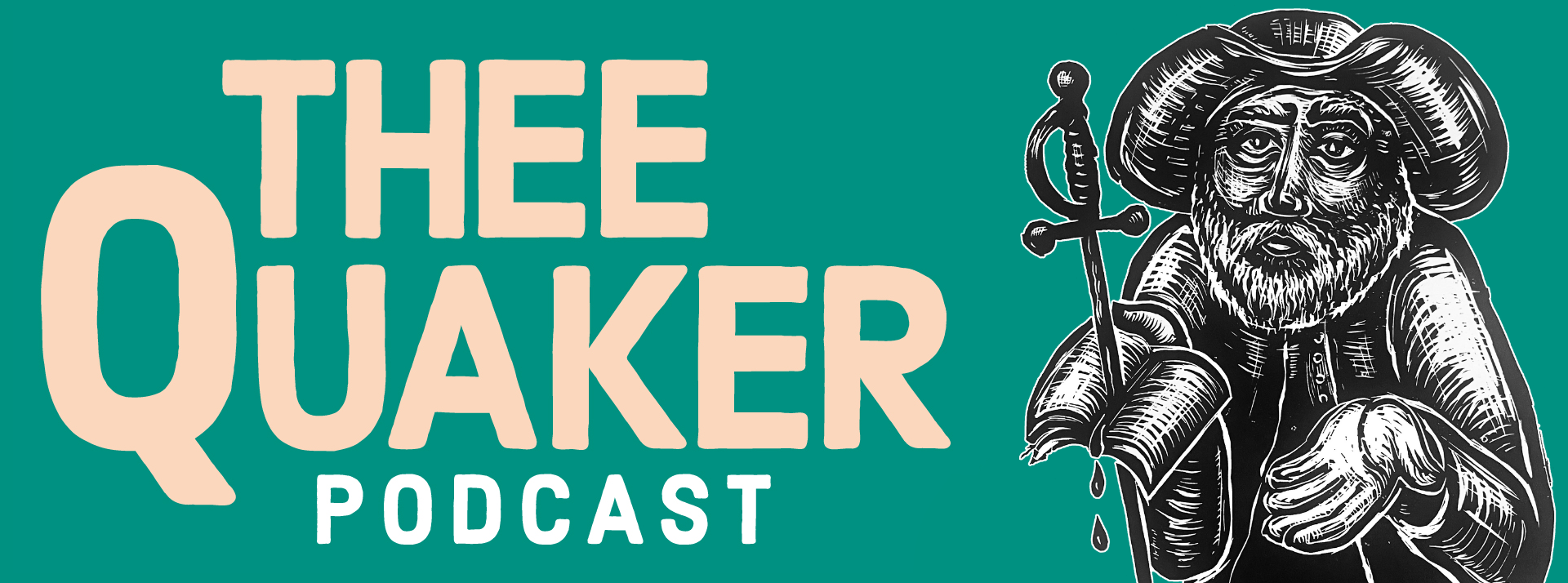

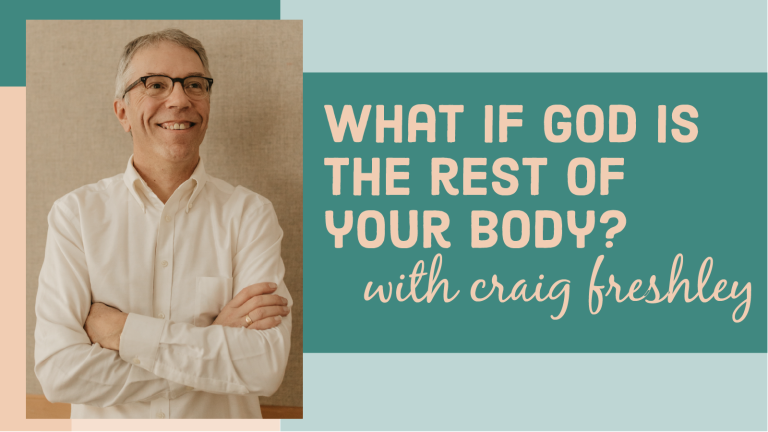
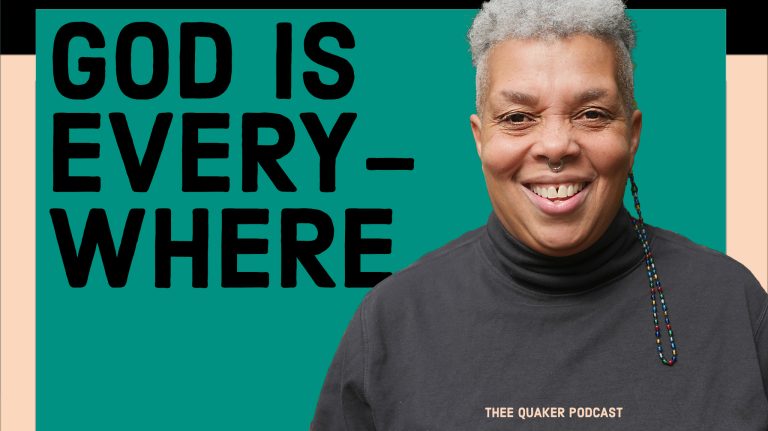
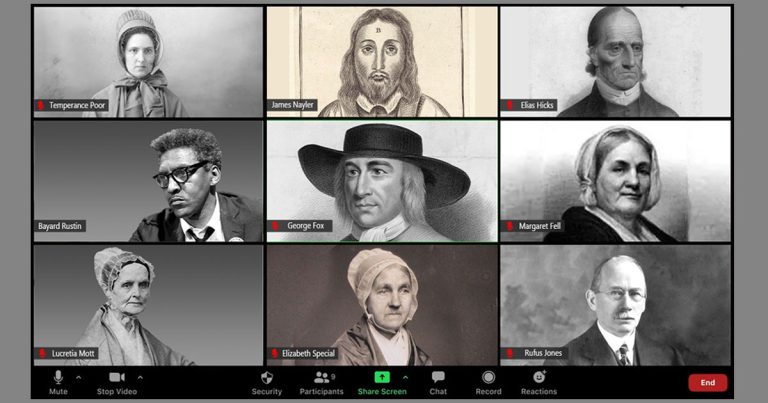
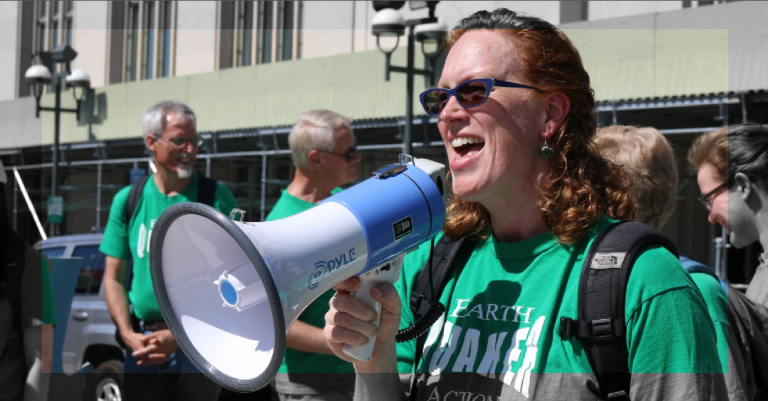
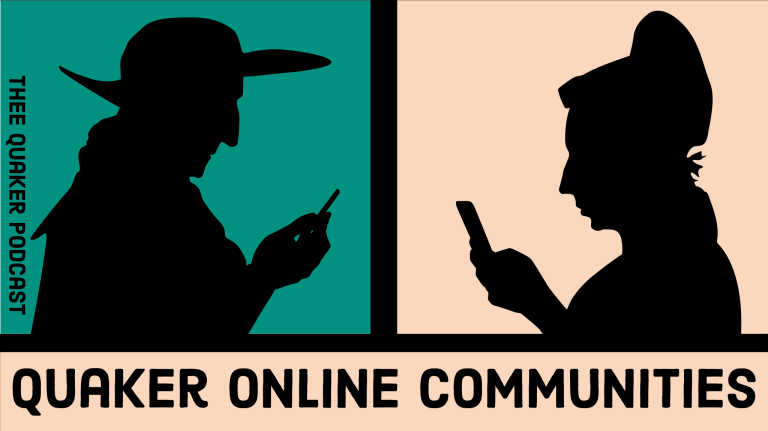
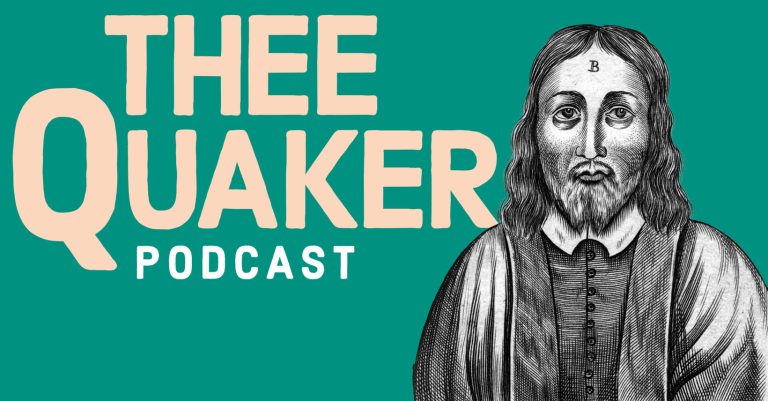
Such an interesting journey to Australia! Thanks for sharing it, I didn’t know much about Australia Quakers, but totally related to what you found there. Great message, Jon!
Thanks Jon & Georgia, you have a wonderful ear for editing chaff from grain. (I know all the chaff I spouted which you kindly edited out 🙂
The future is exciting, with a little Friendly help.
Thank you Georgia and John. What a fun ramble through Australia, and an inspiration!